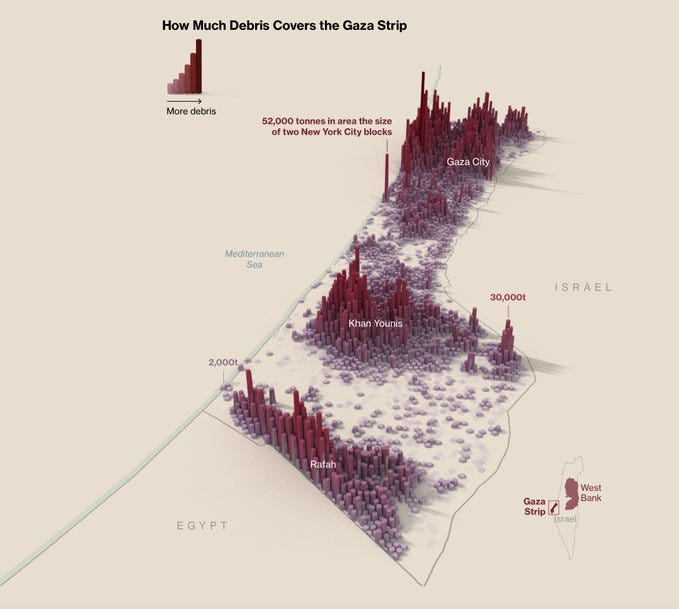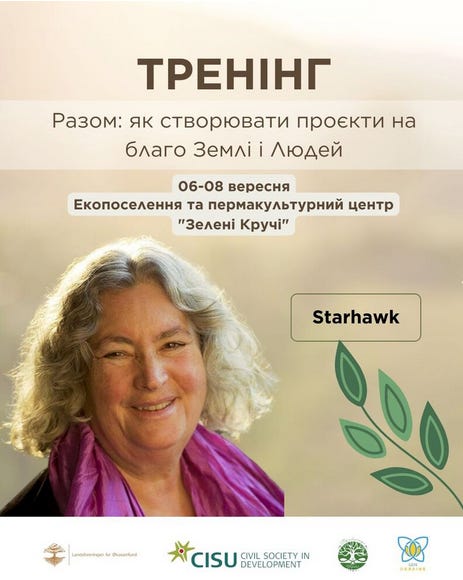Got Dem Stump-bustin’ SkidPro Summertime Blues
The forest edge is receding, slowly at first, and then in a panicked rout. The remnants are called “patches,” but they are not patching anything.
I’m not much of a media junkie but I do like my Weather Channel. That is, until they run those nasty ads for the SkidPro, and I have to roll my eyes and mutter, “What were they thinking?”
In case you haven’t seen it—and maybe they only stream this to rural audiences—the SkidPro brush cutter is a mechanical version of the Belgian draft mule. It’s a marriage between a riding mower and a bulldozer. I don’t know if you’re supposed to have one in the garage of your MacMansion or just put down $500 at the RentRight for a day in the cockpit so that you can feel like an imperial Corps of Engineers on the planet Pandora. The Weather Channel ad is supposed to give you enough FOMO to get off the couch and start clearing some forest.
Most mornings I am out at sunrise biking through the rolling hills, passing fields of corn and soybeans, crossing bridges as the fog steams off the river. I see a lot of second homes. They tend to be poorly kept but sturdy, almost fortress-like. They’re bunkers for city folk to bring their families to when the shit hits the fan, places where they imagine they can grow a garden, get their water from a well, and warn off any unwanted strangers with a wave of their Israeli semiautomatic. They presume they will be able to machinegun deer for protein, without grasping that the deer population has already been pretty thoroughly machinegunned in these parts, which is why the deer are invading suburbia looking for refuge.
The ethos—of both the preppers and the SkidPro ads, stands in sharp contrast to the latest TED talk from Johan Rockstrom at the Stockholm Resilience Center.
We actually have evidence that we've reached a pivotal point, not only in terms of risk, but also in terms of opportunity to transform the world towards a safe and just future for humanity. Linear change is no longer an option. The only option is exponential change. We know that the only currency that matters is speed and scale. We also need to become stewards of the entire planet. We need to now recognize, from local to global level, that we're all so intertwined that we must govern the entire plan.
I know, that is very daunting, but what choice do we have when on the line is the future of our children on planet Earth? And we have the solutions. We know that solving the planet crisis is not utopia. It's not fantasy. We have the solutions for a secure, stable future for humanity. What are those transformations? Well, we know them. It's a rapid transition away from fossil fuels. It is a transition towards circular business models. It is transitioning towards healthy diets from sustainable food systems. And it's not only halting loss of nature, it's also scaling the regeneration and restoration of marine systems, soils, forests and wetlands. We have solutions for all of these.
Rockstrom observed that 53 percent of the carbon dioxide from fossil fuel burning and land system change has been soaked up by intact nature on land and in the ocean. He warned that anything humans do to break apart that intact element diminishes the cure—it potentially even makes the problem incurable. That is why some years ago the UN Convention on Biodiversity COP adopted a no-degradation standard for intact forest. And yet, all around me as I bike the hills and hollers, I see the recent work of SkidPros in the hands of Saturday chore-keepers. The forest edge is receding, slowly at first, and then in a panicked rout. The remnants are called “patches,” but they are not patching anything.
Land Degradation Neutrality (LDN) is a global target adopted by 188 members of the United Nations (95% of all 196 Parties). Convened under UN auspices in 2022, chaired by China, and hosted by Canada, the 15th Conference of Parties to the UN Convention on Biological Diversity adopted the “Kunming-Montreal Global Biodiversity Framework” (GBF), including four goals and 23 targets for achievement by 2030.
Among the targets:
Effective conservation and management of at least 30% of the world’s lands, inland waters, coastal areas and oceans, with emphasis on areas of particular importance for biodiversity and ecosystem functioning and services. The GBF prioritizes ecologically-representative, well-connected and equitably-governed systems of protected areas and other effective area-based conservation, recognizing indigenous and traditional territories and practices. Currently, 17% and 10% of the world’s terrestrial and marine areas respectively are under protection.
Have restoration completed or underway on at least 30% of degraded terrestrial, inland waters, and coastal and marine ecosystems
Reduce to near zero the loss of areas of high biodiversity importance, including ecosystems of high ecological integrity
Cut global food waste in half and significantly reduce overconsumption and waste generation
Reduce by half both excess nutrients and the overall risk posed by pesticides and highly hazardous chemicals
Require large and transnational companies and financial institutions to monitor, assess, and transparently disclose their risks, dependencies and impacts on biodiversity through their operations, supply and value chains and portfolios
I see the Skid Pro ads more as a reflection of a troubled national psyche than as any planning process that weighs economic benefits and costs. About 27% of USAnians claim to have experienced climate anxiety. According to Nature, more than half of people aged 16–25 feel sad, anxious, or powerless or have other negative emotions about climate change. Altogether, hundreds of millions of people worldwide might be experiencing some form of climate despair.
According to The Guardian, more than 40% of USAnians think that a Civil War is likely. In 2024, 43% of adults caught up in the American Psychiatric Association's annual mental health poll say they feel more anxious than the previous year, up from 37% in 2023 to 32% in 2022. USAnians are particularly anxious about current events (70%) — especially the economy (77%), the coming election (73%), and gun violence (69%). This statistic has tripled from pre-pandemic years, when gun concerns were lower than 7%. According to Statista, the USA is among the twenty most anxious nations in the world.
Rockstrom says, “We need to come back into the safe operating space of the nature-based biodiversity, all the planetary boundaries of nature. This means that science is clear. The window is rapidly closing.”
That is one way of framing it.
In a different way, Janine Benyus begs some salient questions of the builders of doomsteads.
“What would that site have been if you weren't there? Would it be a forest or would it be a prairie or a combination of such?” Clearly, everywhere we turn we are knocking down some piece of intact nature and replacing it with human folly.
Taken that far, her message is not very different than Rockstrom’s. But then she urges us look a little more closely. How intact was that nature you were replacing? How has that location already been damaged, maybe by your ancestors seven generations ago, or seventy? We are the junior species in this global ecosystem. And like any toddler, we were oblivious to consequences when throwing oatmeal at the dog.
We're a very young species—two to three hundred thousand years—compared to 3.8 billion years, so in our toddler age we're just like, what? Well, we want to do all these good things. But we'll just plant some things and nature will do it the rest—nature will do it for us. Not really.
— Janine Benyus, Creating regenerative spaces in harmony with nature
Her prescription is for us to grow up and be responsible members of the ecosystem—to stop being rebellious children tearing it down. Passive caretaking is not enough. We need to be full participants in the creative, regenerative, cyclical processes of ecosystem restoration. We can do that through conscious, reformist design practices like permaculture, bioregionalism, and biomimicry. Primarily, we will do that by developing awareness.
So suddenly your Landscape Architects are not just putting in gumdrop shrubs, you know? They're putting in something that's a bio-irrigator, something that attracts nesting and pollinating species, right? They're creating. Your architects are creating texture, habitat. They're creating niches for birds to live in, right?
I can imagine that sort of shift in our thinking as a species. It is being forced upon us now, by the climate we have brought into being as careless caretakers.
We will have to grow up or perish, just like Johan said. But the world we are entering could be much better. There could even be a place in it for SkidPros.
Last week we reviewed Joe Bageant’s Deer Hunting with Jesus and lamented the author’s passing before the current political drama took shape. I don’t know that he could solve the SkidPro problem for me, but he would doubtless have had some choice words.

Meanwhile, let’s end these wars. We support peace in the West Bank and Gaza and the efforts to bring an immediate cessation to the war. Global Village Institute’s Peace Thru Permaculture initiative has sponsored the Green Kibbutz network in Israel and the Marda Permaculture Farm in the West Bank for over 30 years and will continue to do so, with your assistance. We aid Ukrainian families seeking refuge in ecovillages and permaculture farms along the Green Road and work to heal collective trauma everywhere through the Pocket Project. You can read all about it on the Global Village Institute website (GVIx.org). Thank you for your support.
Help me get my blog posted every week. All Patreon donations and Blogger, Substack and Medium subscriptions are needed and welcomed. You are how we make this happen. Your contributions can be made to Global Village Institute, a tax-deductible 501(c)(3) charity. PowerUp! donors on Patreon get an autographed book off each first press run. Please help if you can.
#RestorationGeneration.
當人類被關在籠内,地球持續美好,所以,給我們的教訓是:
人類毫不重要,空氣,土壤,天空和流水没有你們依然美好。
所以當你們走出籠子的時候,請記得你們是地球的客人,不是主人。
When humans are locked in a cage, the earth continues to be beautiful. Therefore, the lesson for us is: Human beings are not important. The air, soil, sky and water are still beautiful without you. So, when you step out of the cage, please remember that you are guests of the Earth, not its hosts.
We have a complete solution. We can restore whales to the ocean and bison to the plains. We can recover all the great old-growth forests. We possess the knowledge and tools to rebuild savannah and wetland ecosystems. It is not too late. All of these great works are recoverable. We can have a human population sized to harmonize, not destabilize. We can have an atmosphere that heats and cools just the right amount, is easy on our lungs and sweet to our nostrils with the scent of ten thousand flowers. All of that beckons. All of that is within reach.
Social Permaculture
Global Village Institute in cooperation with GEN Global Ecovillage Network Ukraine and Permaculture in Ukraine, invite you to a three-day training on creating eco-projects with the world-famous teacher and author Starhawk.
Where: Ecovillage Zeleni Kruchi (Green Cliffs), Ukraine.
When: 6-8 September 2024 (arrival on the 5th)
Participation fee: 1500 UAH
What: The course will cover:
- the power of collaboration and groups;
- the balance between friendship and accountability;
- adherence to basic human values and needs as the foundation of a stable community;
- tools for communication and conflict transformation;
- principles of social. permaculture as a group compass;
and much more.









